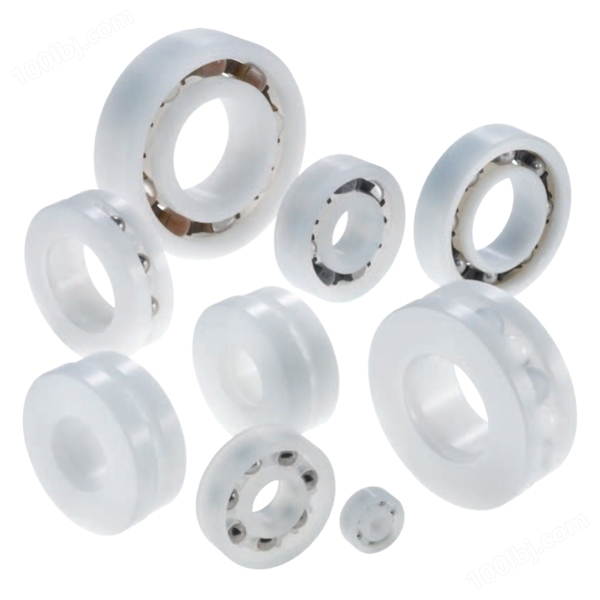品牌
经销商厂商性质
上海市所在地

? Polymer rings
? Balls made of stainless steel, glass, polymer or other materials and
? A polymer cage.
Polymer ball bearings can be made from a variety of materials and material combinations. The materials selected depend on the application. Polymers have significantly different properties than steel. One of the most unique properties is that they are corrosion and chemical resistant.
The polymers used to make bearings have a low coefficient of friction and are highly resistant to wear and fatigue. These selflubricating bearings can run dry and require no relubrication.
However, the loads and maximum speeds that a polymer bearing can accommodate are much lower than for conventional all-steel bearings.
The high specific strength – (strength to weight ratio) is a valuable property of polymer bearings especially in applications where weight is an important design consideration. High dimensional stability throughout the lifespan is achieved by the low creep tendency of the polymers used.
? Corrosion resistant
? Chemical resistant
? Self lubricating (no lubricant required)
? Light weight (80% less than steel)
? Some have high temperature usage
? Low coefficient of friction
? Quiet running
? Good damping properties
? Electrical insulator
? Integrated functions for special bearings
? Low lifecycle costs
Polymer ball bearings are typically used in applications where resistance to moisture or chemicals is essential. In these applications, steel can not be used – or only with certain restrictions – making polymer ball bearings the best solution from both a technical and an economic perspective.
Polymer ball bearings can run without lubrication. Therefore they can also be deployed where no lubricants can be used, e. g. for hygienic reasons.
The possible areas of use are as varied as the properties and advantages of polymer ball bearings. The following is a partial list of those industries and applications where polymer ball bearings are already in use today:
? Food and beverage
? Medical
? Heating and air conditioning
? Chemical and electro plating
? Film, photographic and pharmaceutical
? Textile
? Electro technology
? Consumer goods
? Office products
? Model and lightweight construction
? Measuring equipment
? Material handling and transportation
? Vacuum applications